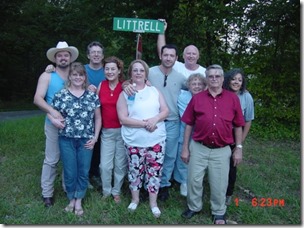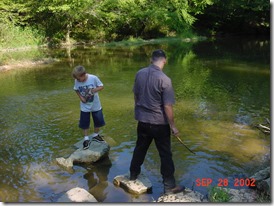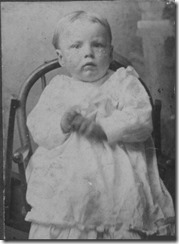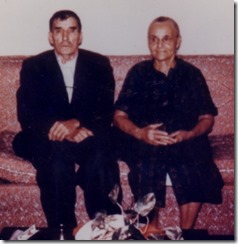In 1670, James Lotterell arrived at the ports of Virginia, establishing our family’s presence in America over 330 years ago, a hundred years before the official birth of our nation. Like many other families, our history is this country's history.
From the arrival of our immigrant ancestor as an indentured servant, to Colonial Virginia, to the frontiersman and settlers of Tennessee and Kentucky, to the depression era migration of many "Tennesseans" to Missouri and Texas as sharecroppers, to WWII, Korea, and Afghanistan. For over three hundred years, our history and America's history have made up what is known as "Americana". 
The make-up of our families is just as representative as the "melting pot" quality of this country. We are descendants of Irish, Prussian, French-Norman, English, and German intermarriages from our earliest ancestors, and from our modern day marriages, our descendants are also going to posses Filipino, Hispanic, Scottish, African and Native American ancestries.
We are Methodist, Pentecost, Baptist, Catholic, non-denominational, agnostic, plenty of undecided and who knows what else? Republican, Libertarian, Democrat, conservative, liberal, and indifferent. "Salt of the Earth," and "High Faluten". "Good OLE Boys", "Country Bumpkins", and "City Boys". We have our "skeletons in the closet" and our "forthcoming and upright".
No matter which point of view you use, this family is as American as apple pie, and just like understanding what it is to be American is understanding its history, understanding who we are is knowing our heritage.
When considering the importance of knowing where our homestead is, it's not about being able to say it was here or it was over there. It is more about standing somewhere and knowing that where you are at now was not an easy place to be back then. That just to live and survive it took a spirit and toughness that you cannot always relate in words. 
When I was a kid and dad would start to tell us how, "HE used to walk 5 miles to school everyday in six feet of snow….uphill both ways" It was hard for us to listen without wondering 'so what'. But a few years ago when cousins Wynell, Dean, Jo, Gary, Cathy, and myself jumped in the back of Doc Urban's pick-up [because our cars couldn't handle the terrain] and started driving cross country to visit the Old Selena Cemetery where Timmons and Mary Catherine are buried, all of a sudden the idea of walking even half a mile through this terrain seemed significant. When you stop and look at an old slate wood shack and realize that your garage provides more protection for your car than this house did for a whole family, the modern use of the term "roughing it" looses it's meaning. When you stand in the field where Rhodom started, raised and buried his family and realize that even today the nearest neighbor or road is out of site and over rough terrain you have to wonder at the everyday will of these people. No shopping mall, no store for miles, no phone, TV or electricity, no emergency service, no place to "hang out", just a field, a cabin, a dirt path, and a beautifully clear freezing cold creek that was your bathtub, washtub, swimming hole, fishing hole, and drinking fountain. Without actually standing there and witnessing the beauty and toughness of this country, I do not think that any spoken or written words could convey to today's youth what it must have taken to just survive.
For these reason I believe that attending family reunions are the most special thing you can do with your children and grand children.
At every Littrell family reunion someone says, "That's a Littrell for you." Would your kids and grand kids know what that means? If they had attended some reunions, met your aunts, uncles, and cousins, they would, and they would know more about you, themselves, their heritage, and their country.
Everyday we hear more and more about the disintegration of the American family, decaying values, and kids who have an identity crisis. Well there was none of that at last year’s reunion!
Where you at last years reunion? Are you going to be at this year's reunion? I ask this question every year. Is your answer every year, No? Well, we miss you. Somebody asked about you and we did not know what to tell them. They wanted to know how your kids, grand-kids, brothers and sisters where doing. We did not know what to tell them and we did not want to worry them, so we just nodded our head and said everything was probably all right. Some of your cousins had a brand new baby or two and a couple of them got married; the family grows every year, we are not disintegrating. Some of your cousins were missing, some because they have gone on to a better place and some like you had better things to do.
Glenn D. Littrell
PS. if you're worried that you won't know anyone at the reunion, relax they'll know you, I still can't remember everyone and no one has bit me yet.



